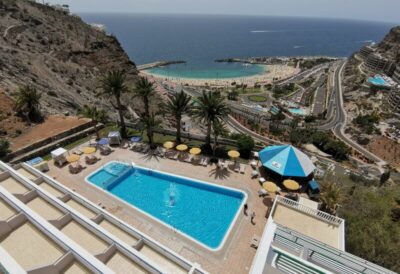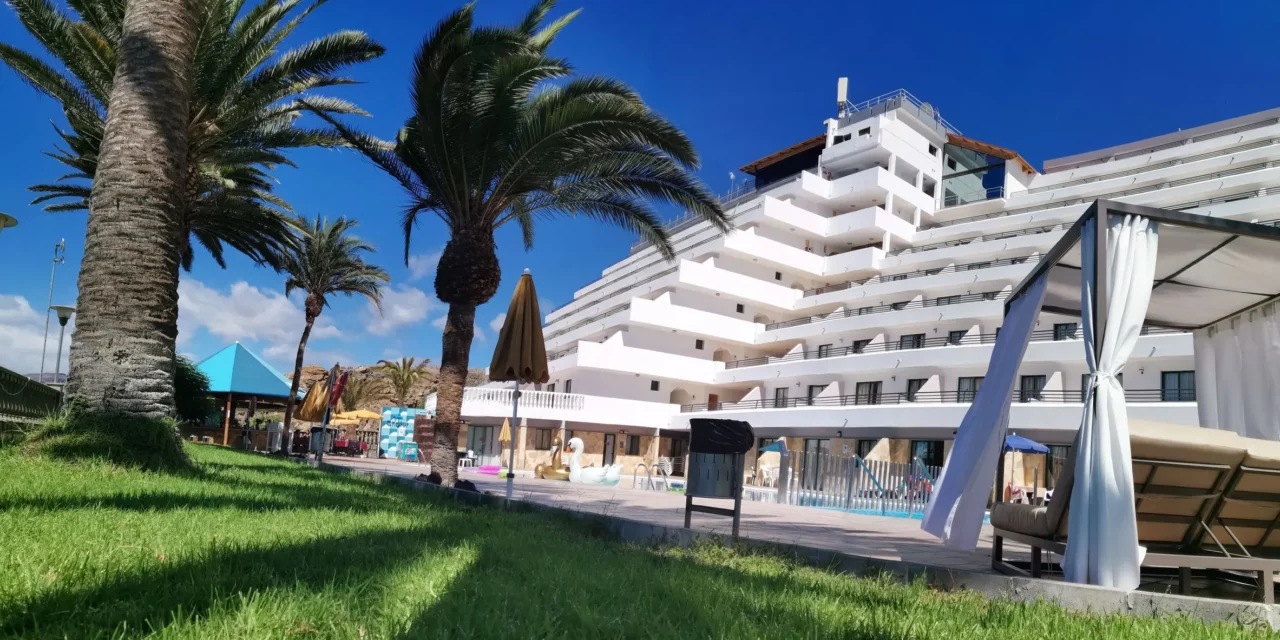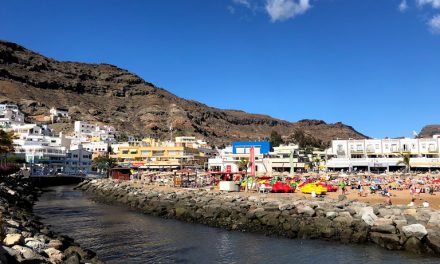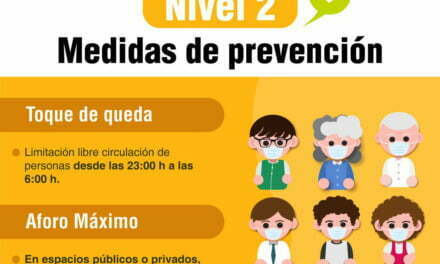The need for care homes and suitable sheltered accommodation for the elderly, particularly foreign elderly residents on the island, is a pressing concern throughout the Canary Islands region. Many elderly individuals, including foreign retirees who have chosen the island as their retirement destination, require socio-sanitary care and assistance as they age. However, the shortage of available spaces in care facilities and the lack of proper sheltered accommodations have become significant challenges in meeting the growing demand for elderly care services.
The need for care homes and suitable sheltered accommodation for the elderly, particularly foreign elderly residents on the island, is a pressing concern throughout the Canary Islands region. Many elderly individuals, including foreign retirees who have chosen the island as their retirement destination, require socio-sanitary care and assistance as they age. However, the shortage of available spaces in care facilities and the lack of proper sheltered accommodations have become significant challenges in meeting the growing demand for elderly care services.
The situation is particularly challenging for foreign elderly residents who may not have an extensive support network on the island. These individuals often face unique language and cultural barriers, making it difficult for them to access appropriate care and support services. Without family members or close friends to rely on, they heavily depend on the existing care infrastructure, which unfortunately struggles to accommodate the rising number of pensioners.
Adding to the complexity of the issue, some elderly individuals, whether foreign or local, lack the necessary paperwork or formal documents to access proper care services. This situation leaves them in a vulnerable position, as they are unable to receive the specialised attention they may require in their senior years.
To address these pressing challenges, the regional government, represented by the Canarian Health Service (SCS), has been exploring innovative solutions to bridge the gap in elderly care facilities. One such initiative involves the temporary use of a tourist accommodation facility, Chatur Palmera Mar apartments, which has been transformed into a residence for the elderly in the popular beach area of Amadores, in the popular south west municipality of Mogán. This “transitional resource” has been activated under the joint Order of the Ministries of Social Welfare and Health, approved in March 2022.
It’s clear that there is a need that must be addressed, and this seems like a very sensible solution.
In fact there is probably a lot of good reasons why focusing on the needs of older visitors and residents could well be seen as desirable, and perhaps even generate new revenues for the tourism industry, the south of the island and the changing communities that reside there, all while solving a very serious and growing problem for the region.
Why shouldn’t older people, who need a bit more care and attention, be allowed to have that in the sunshine, in a facility organised specifically around their needs, and cared for by professionals? Isn’t this just another type of hospitality? One with real benefits to society.
We’d be interested in your thoughts…
Timon .:.
While this measure provides a temporary solution to alleviate some of the pressure on the hospital system, it has also been met with resistance from the local authorities and the mayor of Mogán, who argue that the tourist facility may not meet the necessary conditions to offer adequate care and support to elderly individuals with specific socio-sanitary needs. La Alcaldesa Bueno also claims that it is illegal to use tourism accommodation for healthcare provision.
In light of these challenges, there is a need for collaboration between the regional government, local authorities, and relevant stakeholders to find sustainable solutions that cater to the growing demand for care homes and sheltered accommodations for the elderly, both local and foreign. This includes streamlining bureaucratic processes for elderly residents who lack proper paperwork, as well as enhancing support networks and services to cater to the unique needs of foreign elderly individuals.
Investing in the expansion and improvement of socio-sanitary care facilities, along with providing specialised training for caregivers and staff, could significantly enhance the quality of life for the elderly population on the island. It could even produce a significant increase in revenues for tourist resort areas. Moreover, addressing the bureaucratic hurdles and ensuring equitable access to care resources will contribute to the overall well-being and welfare of the elderly community.
In the long term, by prioritising the needs of the elderly and recognising the valuable contributions of foreign elderly residents to the local community, the region can create a more inclusive and compassionate care system that serves the ageing population with dignity and respect.
The health administration stated yesterday that this is a “new transitional resource,” which has been activated under the joint Order of the Ministries of Social Welfare and Health, which “temporarily solves the social problem faced by people who, for any reason, after being admitted to a hospital due to a health problem, find themselves unable to return to their homes.”
The ‘seizure’ of acute care beds by these chronic users and the shortage of socio-sanitary care places managed by the island councils keep the two university hospitals on Gran Canaria, Doctor Negrín and Insular-Materno, overwhelmed. This measure is just one of the solutions that the Government of the Canary Islands can use to relieve the congestion in its hospital resources. Around 500 people who have already been discharged medically remain in the public hospitals of the Canary Islands due to the lack of socio-sanitary resources.
According to the same source from the Ministry, the new centre has received a “favourable report for sanitary use” from the Accreditation and Concert Units of the SCS.
 However, La Alcaldesa Bueno, the mayor of Mogán, has shown resistance to the “illegality of this operation,” not only for violating the municipal planning regulations but also because, she feels, the tourist facility does not meet the appropriate conditions to accommodate this profile of users.
However, La Alcaldesa Bueno, the mayor of Mogán, has shown resistance to the “illegality of this operation,” not only for violating the municipal planning regulations but also because, she feels, the tourist facility does not meet the appropriate conditions to accommodate this profile of users.
The Ministry say that they have already moved 22 elderly individuals to this “transitional resource, which is supported by the 2022 Order.” Furthermore, the municipal mayor, who was already aware of the plans to convert the Palmera Mar apartments into a residence for the elderly, warned both the property owner, Chatur Hotel & Resorts Group, and the various ministries of the Government of the Canary Islands about the illegality of the operation last week when the transfer of these patients with socio-sanitary needs to the tourist facility began.
Disciplinary action to Stop The Transfers
Mayor Bueno also revealed that the Town Council has initiated proceedings against the tourism group for violating municipal planning regulations. She asserts, “This use is not allowed on tourist land, it is illegal, and we have contacted the Ministry of Health to stop the transfers.” She also informed the Ministry of Tourism of the Government of the Canary Islands and the Tourism Board of Gran Canaria about the situation.
According to the Ministry of Health, 22 people are already housed in this transitional resource while they await a definitive place in a socio-sanitary centre, whose management depends on the island cabildos. However, the expectation is that this number will rise to over 70 (the establishment has less than 100 lodging units), according to information from the Town Council.
The mayor firmly stated that the complex “does not meet the appropriate conditions to accommodate this type of users.”
“Firstly, the beds in the rooms are not adjustable, they are double beds,” she said. She is also uncertain that the staff who will attend to them “have the necessary qualifications.” Furthermore, Bueno questions how the team that managed the Ministry of Health in the previous mandate could reach an agreement of this kind to “place a socio-sanitary use in a prohibited area.” Moreover, according to the information available, the agreement included the conversion of another complex owned by the same owner, also located in a tourist area of the municipality of Mogán.
The health administration covers the cost of the user until Dependency Care System assumes it.
The order signed by Health and Social Rights establishes that the transfer of this profile of people to socio-sanitary centres is a “transitional solution” for those who require socio-sanitary care until they obtain a permanent place within the Dependency Care System on the Canary Islands, which is regulated by the Ministry of Social Rights.
The process, initiated by social workers in hospital centres, involves a rigorous procedure that begins “when it is detected that the person has difficulty returning home with a guarantee of socio-sanitary care follow-up,” explains the order. Health is also responsible for the necessary budget to attend to these individuals in a socio-sanitary centre until their dependency file is processed, following the procedure to recognise the person’s dependence situation.”
Canarias is one of the regions with the fewest residential care places, with a coverage rate of just 1.15%, less than half that of the national average of 2.7%, according to the Association of Directors and Managers of Social Affairs. Additionally, the latest data from the Canary Islands government indicates that elderly patients with medical discharge represent between 8% and 10% of the hospital beds occupied by medically discharged individuals, and 14% of these face judicial problems. Most of them are in this situation because they cannot be cared for by their relatives.
On Fuerteventura, there are medically discharged individuals who have lived in hospitals for an average of 1,222 days (more than 3 years); on Lanzarote, 1,590 days (more than 4 years); on Gran Canaria, 1,142 days (more than 3 years), and on Tenerife, 1,225 days (more than 3 years), although there are some specific cases of patients who have lived in hospitals for more than 11 years (4,119 days) waiting for a placement.










